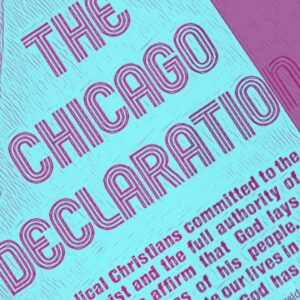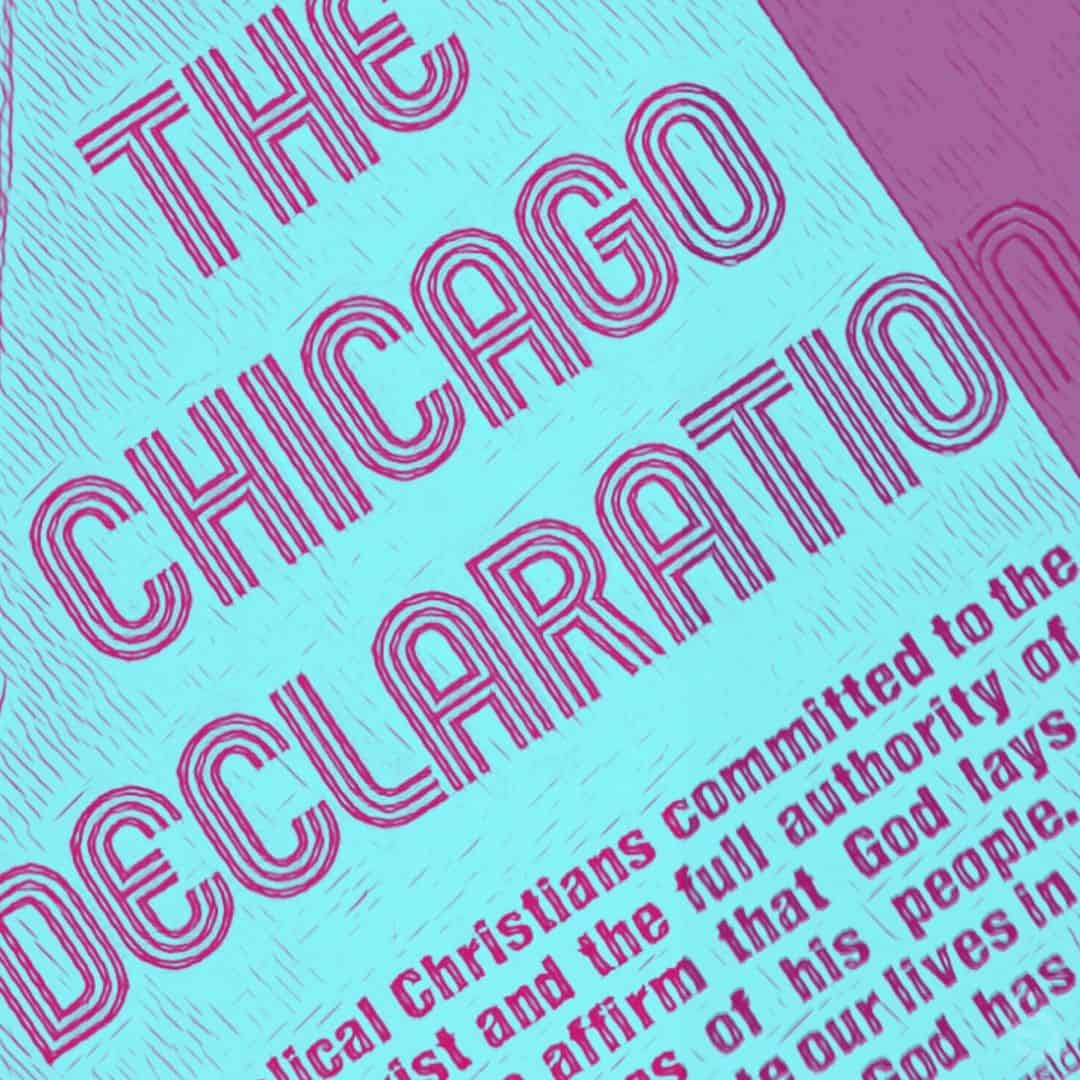 This Women’s History Month, we remember the women who helped shape the Chicago Declaration of Evangelical Social Concern, CSA’s founding document. The Chicago Declaration, signed by 53 evangelical leaders in 1973, was written as a call for Christians to engage in issues of justice and to reject racism, economic injustice, violence, and sexism. While the group that signed the document were diverse theologically, they lacked the racial and gender diversity we strive for today. Little is known about some of the eight women who were involved in the Chicago Declaration workshop, while others have made long-term contributions to Christian feminism and the continued fight for women’s equality in the church.
This Women’s History Month, we remember the women who helped shape the Chicago Declaration of Evangelical Social Concern, CSA’s founding document. The Chicago Declaration, signed by 53 evangelical leaders in 1973, was written as a call for Christians to engage in issues of justice and to reject racism, economic injustice, violence, and sexism. While the group that signed the document were diverse theologically, they lacked the racial and gender diversity we strive for today. Little is known about some of the eight women who were involved in the Chicago Declaration workshop, while others have made long-term contributions to Christian feminism and the continued fight for women’s equality in the church.
1. Nancy Hardesty
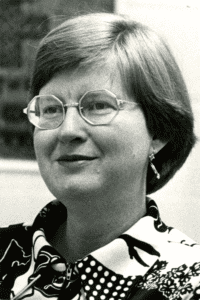
In the fall of 1973, Nancy Hardesty had just begun her PhD studies at the University of Chicago. She had previously worked teaching English at Trinity College and serving as an assistant editor on the staff of the evangelical magazine Eternity. Hardesty recounts, in perhaps one of the only surviving female-authored primary accounts of the Chicago Declaration weekend, that she received an invitation to the weekend workshop because of her association with Eternity and Trinity College. Though documents from the Wheaton archives point to seven or eight women potentially attending the Chicago Declaration workshop, Hardesty reported that only five or six were invited. Hardesty was pivotal in pointing out the lack of mention of women’s equality in the original draft of the document, and she is the author of the small statement that was included in the final version of the declaration. Biblical feminism, as an organized effort, was “conceived” at the 1973 Chicago Declaration meeting and went on to actually come into being starting with the following meeting when the attendees split into “caucuses,” each addressing an area of social concern. Hardesty was a founding member of the Evangelical Women’s Caucus (EWC), which now is known as Christian Feminism Today. This group of feminists rather quickly became a powerful force in advocating women’s equality in evangelical Christianity. In 1987, EWC split into what is now known as Christian Feminism Today (formerly EWC) and Christians for Biblical Equality. Read Nancy’s account here to learn more about her life and ministry.
2. Wyn Wright Potter
Though not listed in the official program for the Thanksgiving workshop during which the Chicago Declaration was drafted, Wyn Wright Potter is recorded as a signatory of the document. Potter served as the director of Black Christian Education for the Reformed Church in America. She is known to have been a Black activist in Chicago and later became one of the major Black “dissidents” at a follow-up conference to the Chicago Declaration in 1975. Along with Dr. Ruth Lewis Bently, she went on to co-found the National Black Christian Students Conference one year after the Chicago Declaration was signed.
3. Dr. Ruth Lewis Bentley
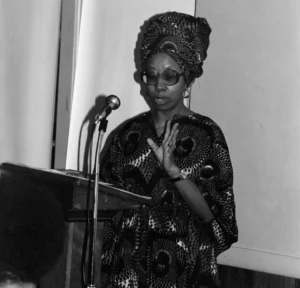
Bentley was a Black sociologist who taught at Trinity College and at the University of Illinois Medical Center. She accompanied her husband, William Bentley. In 1974, one year after the Thanksgiving meeting, she went on to co-found the National Black Christian Students Conference with Wyn Wright Potter. She is one of the still-living signers of the Chicago Declaration and joined Christians for Social Action, in partnership with Wheaton University, to celebrate the 50th anniversary of the Chicago Declaration.
4. Sharon Gallagher
 Gallagher was a student at Westmont College and member of the Christian World Liberation Front, serving as co-editor of Right On magazine (renamed Radix in 1976) at the time of the Chicago Declaration. After participating in the Thanksgiving weekend meeting, she went on to help found Christian Feminism Today (formerly the Evangelical Women’s Caucus). She grew up Plymouth Brethren and is mentioned frequently among progressive evangelicals of the day, maybe more so than any of the other women. She was a powerful activist for women’s equality, campaigning against sexism in the Christian World Liberation Front. Her commitment to biblical feminism led her to carry signs reading “Jesus Was a Feminist” and “Worship God, Not Your Husband.” Learn more about Gallagher’s life and activism in Radix magazine and from this piece on evangelical feminism by David Swartz. Gallagher is now Professor of Christianity and the Media at New College Berkley.
Gallagher was a student at Westmont College and member of the Christian World Liberation Front, serving as co-editor of Right On magazine (renamed Radix in 1976) at the time of the Chicago Declaration. After participating in the Thanksgiving weekend meeting, she went on to help found Christian Feminism Today (formerly the Evangelical Women’s Caucus). She grew up Plymouth Brethren and is mentioned frequently among progressive evangelicals of the day, maybe more so than any of the other women. She was a powerful activist for women’s equality, campaigning against sexism in the Christian World Liberation Front. Her commitment to biblical feminism led her to carry signs reading “Jesus Was a Feminist” and “Worship God, Not Your Husband.” Learn more about Gallagher’s life and activism in Radix magazine and from this piece on evangelical feminism by David Swartz. Gallagher is now Professor of Christianity and the Media at New College Berkley.
5. Betty Danielson
Though she is listed in the official program for the Thanksgiving workshop that drafted the Chicago Declaration, Betty Danielson is not recorded as a signatory of the document. It is unclear whether she opted not to sign the document, or if she was not, in fact, in attendance. Danielson was a social worker from Minneapolis and director of Big Sisters of Minneapolis. It is believed that Danielson served as director of planning services at the United Way of Minneapolis at the time of the Chicago Declaration.
6. Donna Simmons
Though not listed in the official program for the Thanksgiving workshop that drafted the Chicago Declaration, Donna Simmons is recorded as a signatory of the document. It is unclear how she came to attend the meeting.
7. Eunice Schatz
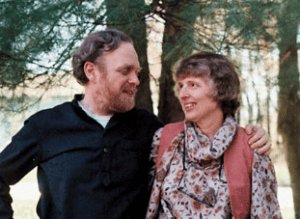
Schatz was the Director of Urban Life Center in Chicago at the time of the Chicago Declaration. She had previously worked in the national organization of the Pioneer Girls, a Christian alternative to the Girl Scouts, for many years. She left that organization when she began to feel ill at ease with the way in which the organization was handling racial justice issues. “I could see the handwriting on the wall—that Pioneer Girls’ largely conservative constituency would not readily respond to the challenges posed by the civil rights movement.” She began graduate studies at the University of Chicago and became more active in the quest for racial justice. She “participated in sponsoring a national conference on race for concerned evangelicals” before going on to found the Urban Life Center. This is likely what made her a prime candidate for inclusion in the Thanksgiving workshop. She later went on to found Life/Work Direction in Boston, MA, with her husband, Don, and an Episcopal priest, Richard Faxon. She is one of the still-living signers of the Chicago Declaration. Read more about her very interesting life in her many essays archived here.
8. Beth Burbank
Burbank is listed in affiliation with Church of the Savior (Washington D.C.) in the official program for the Thanksgiving workshop that drafted the Chicago Declaration. However, Burbank is not recorded as a signatory of the document. It is unclear whether she opted not to sign the document, or if she was not, in fact, in attendance.
***
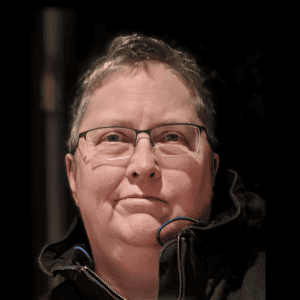 Lē Isaac Weaver identifies as a non-binary writer, musician, web developer, and feminist spiritual seeker. They are an alumnus of Christians for Social Action’s Oriented to Love dialogue program.
Lē Isaac Weaver identifies as a non-binary writer, musician, web developer, and feminist spiritual seeker. They are an alumnus of Christians for Social Action’s Oriented to Love dialogue program.

